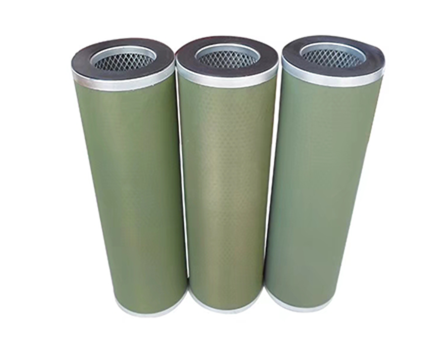 Tel:
+8615930870079
Tel:
+8615930870079
дец . 05, 2024 14:16 Back to list
turbine air intake filters
Turbine Air Intake Filters Essential Components for Optimal Performance
In the realm of aerospace and industrial applications, turbine engines play a pivotal role in ensuring power generation and propulsion. These engines, whether used in commercial aviation, military aircraft, or power plants, rely on several components to function efficiently. One of the most crucial components is the turbine air intake filter, which significantly impacts engine performance and longevity. Understanding the importance, features, and maintenance of turbine air intake filters is essential for operators and engineers alike.
Importance of Air Intake Filters
Turbine engines require a constant supply of clean air to function optimally. The air intake filters serve as the first line of defense against contaminants such as dust, dirt, and debris that can enter the engine. These particles can lead to erosion, corrosion, and other forms of damage, ultimately decreasing performance and increasing maintenance costs.
By effectively trapping these harmful particulates, air intake filters ensure that only clean air enters the combustion chamber. This not only improves engine efficiency but also enhances combustion efficiency, leading to better fuel economy and reduced emissions. In essence, maintaining the integrity of the air intake filter is vital for operational efficiency and environmental compliance.
Features of Turbine Air Intake Filters
Turbine air intake filters come in various designs and materials, each tailored to meet specific operational requirements. Most commonly, filters are made from synthetic fibers, foam, and paper media, each offering unique advantages. Synthetic filters tend to provide superior dirt-holding capacity and are often used in harsh environments, such as military applications or areas with high levels of particulate pollution.
The design of the filter also plays a significant role. Many turbine air intake filters utilize a multi-stage filtration process, capturing larger particles first and progressively filtering smaller ones. This layered approach enhances filtration efficiency and prolongs filter life.
Another noteworthy feature is the filter's ability to withstand high temperatures and pressures. Given that turbine engines operate in extreme conditions, filters must be constructed from materials that can endure these stresses without degrading or compromising performance.
turbine air intake filters

Maintenance of Turbine Air Intake Filters
Regular maintenance of turbine air intake filters is essential for ensuring the long-term performance of turbine engines. Neglecting filter maintenance can lead to clogging, reduced airflow, and resultant engine performance issues. Therefore, operators must implement a rigorous maintenance schedule, including regular inspections and cleaning or replacement of filters as necessary.
The maintenance process typically begins with a visual inspection to check for signs of damage or excessive dirt accumulation. Many filters are designed to be reusable, allowing for cleaning with compressed air or washing with mild detergents, depending on the material. However, it’s essential to follow the manufacturer's recommendations for cleaning procedures to avoid damaging the filter.
In cases where filters are too worn or clogged to be cleaned, timely replacement is crucial. Operators should maintain an inventory of replacement filters to minimize downtime—a significant consideration in commercial and military operations where every moment counts.
Innovations in Air Intake Filter Technology
Recent advancements in filter technology have led to the development of more efficient and effective turbine air intake filters. Innovations such as nanofiber technology and electrostatic filtration have improved the ability to capture smaller particles while maintaining optimal airflow rates. Such developments not only enhance engine performance but also contribute to lower emissions, aligning with global trends toward sustainability.
Moreover, modern filters often come equipped with sensors that monitor the condition of the filter in real-time. This capability allows for predictive maintenance, enabling operators to replace filters at the optimal time before performance degradation occurs.
Conclusion
Turbine air intake filters may seem like a small component in the grand scheme of turbine engine design, but their role is undeniably significant. By ensuring clean air enters the combustion chamber, these filters play a crucial role in protecting engine integrity, enhancing efficiency, and reducing maintenance costs. As technology continues to evolve, operators can expect even more advanced filtering solutions that promise improved performance and sustainability in turbine engine operations. Making informed choices regarding filter selection, maintenance, and replacement is vital for anyone involved in managing turbine engines, thereby ensuring their longevity and optimal functionality.
-
Types and Applications of Air Filtration CartridgesNewsJul.28,2025
-
The Role of Gas Turbine FiltersNewsJul.28,2025
-
Mastering Air Filter Cartridge UseNewsJul.28,2025
-
Advanced Turbine Filters for Modern Gas TurbinesNewsJul.28,2025
-
Cellulose Air Filter Cartridge Advantages in Dust FiltrationNewsJul.28,2025
-
Cellulose Filters for Air Particle ReductionNewsJul.28,2025

 Email:
Email:





